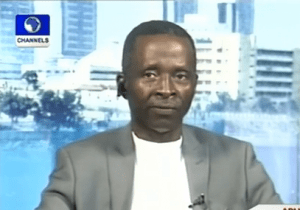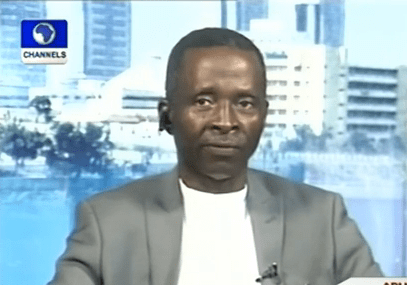
“For a matter that could easily be solved, the government does little or nothing and you have one reprisal attack after the other until you get to a situation where government creates a fertile ground for insurgents.”
Appearing on Channels Television’s breakfast programme, Sunrise Daily, Mr Bantex opined that the security challenges in the country appeared to have “overwhelmed the security operatives generally and the government of Nigeria and the governments of the various States, particularly the ones affected.”
Commenting on the ethnic clashes in southern Kaduna which had received prominence in recent years, Bantex disclosed that skirmishes were usually triggered by “very simple issues, arguments between Fulani herdsmen and farmers,” but maintained that these skirmishes were encouraged as a result of the lack of “pro-active action by security agencies.”
He also noted that the absence of a judicial system to resolve the issues as and when they happen allowed the crises to escalate and become a “fertile ground for insurgents from outside the immediate communities that are affected”.
“Generally, my own take on this is that government has to do all it takes to apply the necessary political and diplomatic solutions to some of these issues.”
On the recent attack in southern Kaduna, Bantex disclosed that 148 persons were killed in Maroa Chiefdom of Karua Local Government Area and that the attack was as a result of “small issues that did not receive adequate attention from government.”
The former House of Reps member who claimed to be familiar with the situation in the southern part of Kaduna, said that “in the aftermath of the post-election crisis of 2011, a total of about 51 of such crisis have taken place… leaving as many as 600 people dead, mostly women, the elderly and children and about over 100 burnt.”
He also noted that about 136 arrests had been made but that there were no concrete conclusions and they were not certain of prosecutions made.
He however did not discredit the arguments that the Fulani had issues including desertification and decreasing grazing lands, increased population and disappearing grazing paths through which the herdsmen move.
Hence, “in the course of their occupational activities of rearing and in the absence of permanent grazing lands, they move into farmlands.” According to Bantex, the herdsmen had been welcomed in previous years as the manure from the cows benefitted farmers’ lands, as fertilizer.
He noted that “people were ready to pay to even have the Fulani’s settle within these communities. They were friendly, they were homely and everybody benefitted from their milk.”
Bantex decried the disregard for the rule of the law in the nation as the practice in previous years mandated the leader of the Fulani’s to pay for damages in cases whereby the herdsmen destroy farmlands.
“These days when you take a matter before the police, you don’t seem to get immediate justice so what we have in this country today is that people, generally, have taken the laws into their own hands.”




